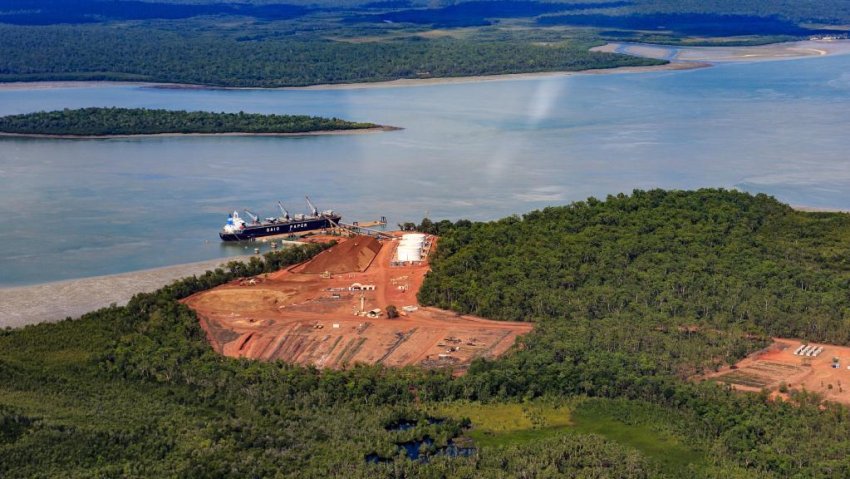
The federal environment minister Josh Frydenberg has again approved the use of a marine supply base at Port Melville in the Tiwi Islands without an environmental impact assessment and with none of the environmental conditions that were previously imposed.
A spokesperson for Frydenberg said on December 15: “The department has decided the operation of a marine supply base at Port Melville is not likely to have a significant impact on the environment and can proceed without further assessment under national environment law.
“Compliance officers from the department have visited the port and noted there were no concerns about environmental management.”
Port Melville is located in an environmentally sensitive area 120 kilometres north of Darwin on a deep sea channel between Melville and Bathurst Islands. A marine supply base began operation there last year without any formal environmental approvals from either the NT or federal governments.
Former federal environment minister Greg Hunt subsequently investigated the environmental impact of the port and concluded it could function without an assessment if it met 12 environmental conditions set by the Department for the Environment.
That decision was overturned by the Federal Court on October 21, after legal action by the Environmental Defenders Office (EDO) on behalf of Environment Centre NT. The court found the exercise of power was “uncertain” and referred the matter back to the new environment minister Frydenberg.
Frydenberg has now approved the port again, but this decision, announced on December 14, appears to apply even less stringent conditions than the 12 environmental conditions set by Hunt earlier this year. The approval allows the port to operate as a marine supply base to ship equipment and supplies for offshore oil and gas fields
EDO principal lawyer David Morris said: “This is the worst case scenario for the environment. What they’ve said is no conditions and no environmental impact assessment.
"The previous decision said it didn't need a Commonwealth environmental approval because the company had agreed to undertake the project in accordance within a whole raft of conditions.
"The conditions that were previously placed on the project are now no longer required to be followed by the project.”
Jacqui Taylor from the Australian Marine Conservation Society said: “It is unbelievable that within weeks of conceding that the conditional operation of Port Melville was unlawful, the same federal department can allow it to operate without any environmental checks and balances.
“The Tiwi Islands lie within the last untouched waters on the planet. They are abundant in marine wildlife, corals, seagrass, mangroves, healthy fisheries and species whose range and distribution is restricted to northern Australia.
“There are at least 38 threatened species living within the vicinity of the port, including the endangered olive ridley turtle, dugongs and internationally significant population of shorebirds.”
In November, the port's operator, Ausgroup's Ezion Offshore Logistics Hub, wrote to the department of environment requesting a variation to its original proposal. Citing “revised operational and market conditions” it halved the number of annual boat movements from 480 to 233 a year.
But Morris said while the boat numbers had been reduced, the other elements, including 30 million-litre fuel-tank and a deepwater port, and their associated risks, remained.
“We’re still talking about a major operation storing 30 million litres of diesel near a pristine environment home to many threatened species,” he said.
“For all intents and purposes this is still a major oil and gas hub constructed and now permitted to operate without any environmental assessment, oversight or approval.”
Taylor said: “This decision sends a signal to large-scale developers that the Northern Territory is open for environmentally risky business and damaging developments could be approved without the appropriate environmental impact assessments.”
Like the article? Subscribe to Green Left now! You can also like us on Facebook and follow us on Twitter.